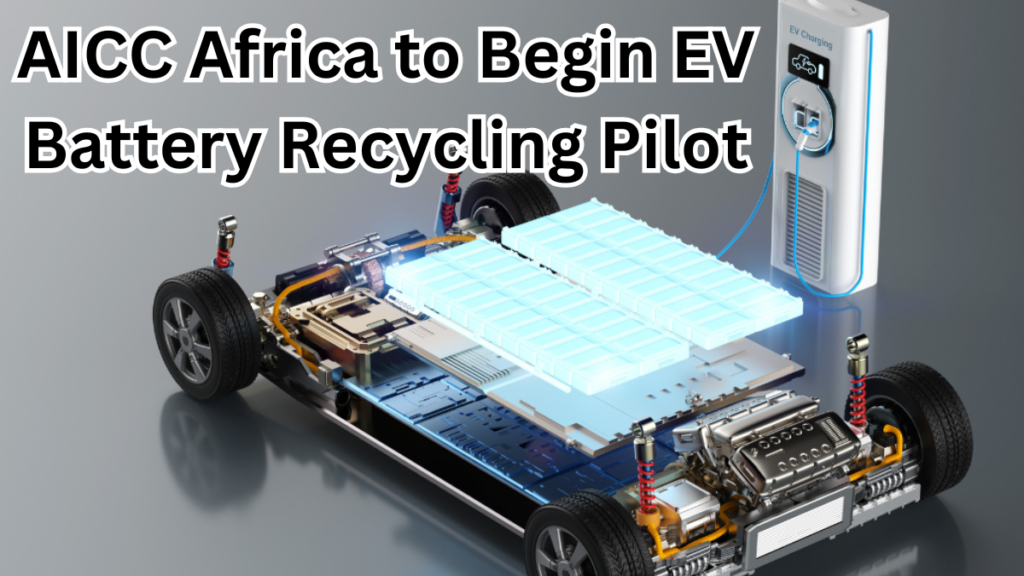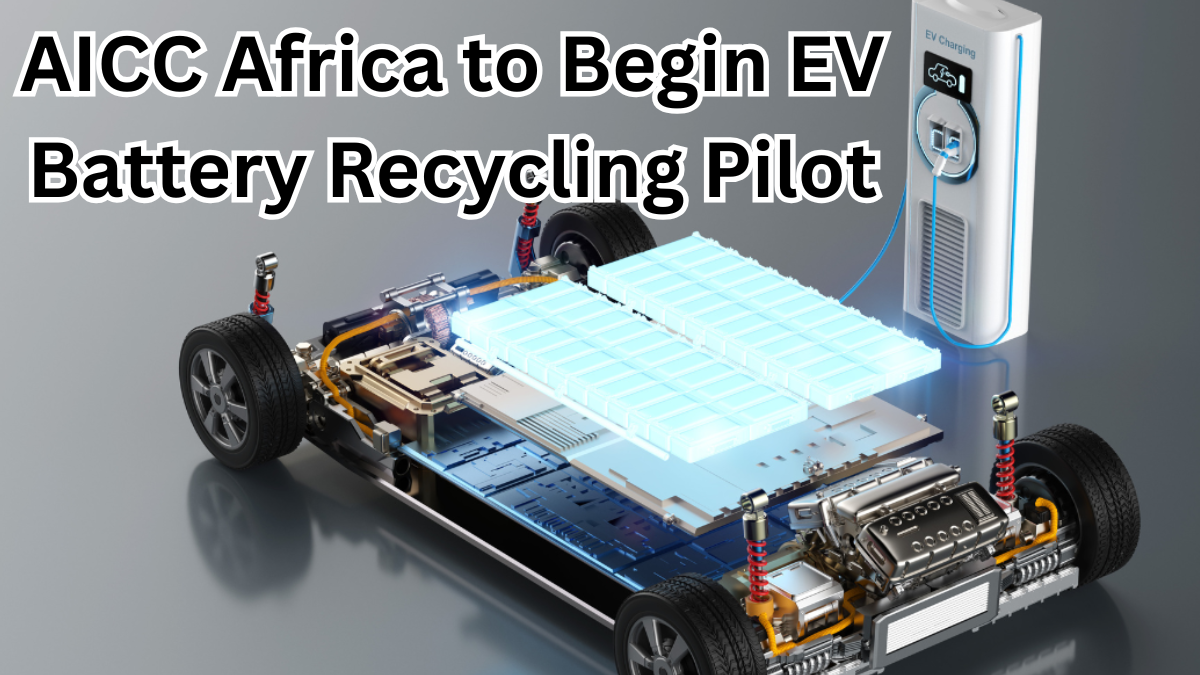In a significant step towards building a greener future, AICC Africa has announced the launch of its EV battery recycling project in 2025. This initiative is expected to not only support sustainable transport in Africa but also address the growing concern of electric vehicle (EV) waste management.
Let’s dive into what this project means for the continent and how it can shape the future of sustainable transport in Africa.

What is the EV Battery Recycling Project by AICC Africa?
The EV battery recycling project is a pilot program aimed at creating an efficient, eco-friendly process to collect, dismantle, and recycle used EV batteries. These batteries, if not properly handled, can harm the environment. Through this project, AICC Africa hopes to set a benchmark for responsible EV waste management across the continent.
Key Highlights of the Project
-
Project Launch: Scheduled for early 2025
-
Scope: Pilot phase covering major African cities
-
Goal: Reduce EV battery waste and promote sustainable transport Africa
-
Technology Used: Advanced recycling and material recovery methods
Why This Project Matters for Africa
The rise of electric vehicles is exciting, but without proper recycling systems, the continent could face a new wave of environmental challenges. The EV battery recycling project plays a crucial role in preventing this by:
-
Minimizing hazardous waste
-
Recovering valuable materials like lithium and cobalt
-
Supporting local recycling industries
-
Promoting a circular economy
Expected Benefits of the EV Battery Recycling Project
| Benefit | Impact on Africa |
|---|---|
| Reduction of EV battery waste | Safer and cleaner cities |
| Recovery of rare battery materials | Lower dependence on costly imports |
| Job creation in recycling sectors | Boost to local economies |
| Support for sustainable transport | Encourages further EV adoption |
| Technology skill development | Builds expertise in battery recycling |
A Step Towards Sustainable Transport in Africa
AICC Africa’s efforts go beyond recycling. This project is part of a broader strategy to build sustainable transport in Africa by:
-
Extending the life cycle of EV materials
-
Encouraging environmentally friendly disposal habits
-
Supporting the growth of renewable energy infrastructure
-
Aligning with global green mobility standards
How the Pilot Program Will Work
Phase 1: Collection and Sorting
Used EV batteries will be gathered from designated recycling stations and EV service centers.
Phase 2: Safe Dismantling
Batteries will be carefully dismantled using eco-safe techniques to prevent leaks or hazards.
Phase 3: Material Recovery
Valuable metals like lithium, nickel, and cobalt will be extracted and processed for reuse.
Phase 4: Feedback and Expansion
After evaluating the pilot’s success, AICC Africa plans to expand the EV battery recycling project across the continent.
The Road Ahead
With this initiative, AICC Africa is paving the way for a cleaner, greener, and more responsible EV ecosystem. The EV battery recycling project is not just about waste—it’s about creating a sustainable future for generations to come.
FAQs
1. What is the purpose of AICC Africa’s EV battery recycling project?
The project aims to safely recycle used EV batteries, recover valuable materials, and promote sustainable transport in Africa.
2. When will the EV battery recycling project start?
The project is scheduled to launch in 2025, beginning with a pilot phase in selected African cities.
3. How will this project support sustainable transport in Africa?
By reducing waste and making battery materials reusable, the project helps lower the environmental impact of electric vehicles and supports the growth of green mobility solutions.
4. Will this EV battery recycling project create new job opportunities?
Yes, the project is expected to generate jobs in battery collection, recycling operations, and technology development across the region.
Click here to learn more
Sachin is a dedicated writer specializing in education, career, and recruitment topics, delivering clear and actionable insights to empower readers.
